Guest Lecture “KOTAKU” – Oktober 2017
Guest Lecture
Guest Lecture in the PWK department by the Kotaku Team, was filled by the East Java Province Leader Team. This guest lecture discusses about the Kotaku regulations in completing the slums settlement in Indonesia, especially East Java. My city already exists in 36 municipal districts in East Java, except Ngawi and Sampang and as many as 1857 village villages.
In this discussion he explained about the ins and outs of my city processes and programs. The process that takes place in Kotaku is inviting volunteers, including the role of the community, then making survey documents that are used as references in alternative development – the appropriate alternative. The aim is to create access to infrastructure and basic services that are livable, productive and sustainable. Actors in my city include government, society and academics. There are seven indicators of slum assessments, namely drainage, garbage, sanitation, regularity of buildings, roads, clean water and fires which are then broken down into 19 criteria.
The background of the emergence of the urgency of handling slums is contained in the 1945 Constitution which explains that all residents have the right to get a place to live Article 28 H paragraph 1. This is also contained in the presidential policy contained in the 2014-2019 RPMJN. This famous movement is 100 0 100. That is 100 berish water, 0 slums, and 100 sanitation. The target is that in 2019 there will be 0 slum areas in Indonesia. Therefore, to make it happen, the government needs help and participation from all parties involved. The ultimate goal is to improve access to basic service infrastructure and reduce slums with the aim of inter-delivery is to reduce slum areas, housing and settlement working groups which consist of cross-agency and private sector, increasing community income, implementing common rules so that community behavior gets better.
The strategy developed was collaboration of all parties, capacity building, participatory, included in the RPJM, increasing access to basic environmental servants, advocacy, changing people’s behavior in a positive direction. This change must be pioneered by the community itself in creating slum-free settlements. The principle developed was to compile a participatory document on action plans for buildings, the environment, and settlements. Synchronizing the planning approach, good governance, investment. The program components are institutional and policy development, integration of planning in interaction and deliberation with the community, improving the quality of infrastructure, implementation and technical support, support for disaster emergency conditions.
At the kelurahan level a strategic plan will be produced while at the city level it produces musrembang. The documents produced at the city level are Rp. 2KPKP and at the kelurahan level the document is the RPLP. The priority set by PU is to be intervened by slum city handlers namely Gresik, Tulungagung, Sidoarjo, Malang, Surabaya. The city was obtained from the 2015 data base line survey which became a reference for the establishment of slums. There is also a classification of slum levels, namely heavy, medium, light slums.
Interventions can be in the form of building renovations by the local government. You can also do rejuvenation on legal land, or back housing in the form of rusunami. An example in post-tsunami Aceh was formed by a community to build houses in accordance with donor agencies. So that from one donor agency, the building will have similarities. The management phase will make the community want to maintain the facilities that have been built to remain in good condition. But in the implementation practice, it was not enough just to build infrastructure, but had to change the pattern of community behavior so that they could utilize the infrastructure that had been built.
The planning carried out was participatory, namely planning involving the participation of the community and local government. In this case the community is able to propose what the needs are. In terms of financing using BDI, namely Investment Funds. The desired target of my city is 0% slum in 2019.
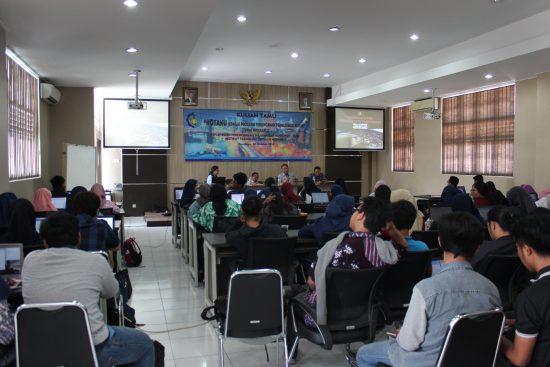

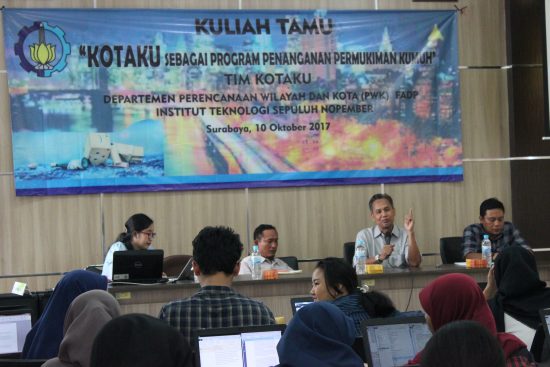
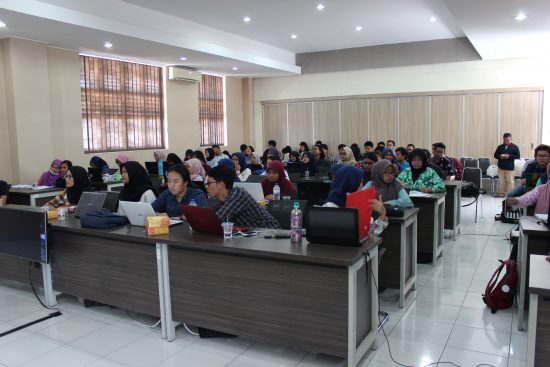
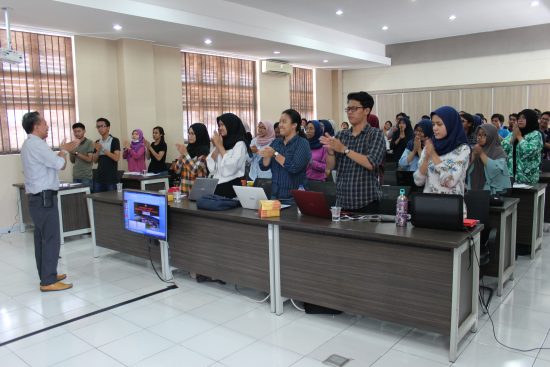
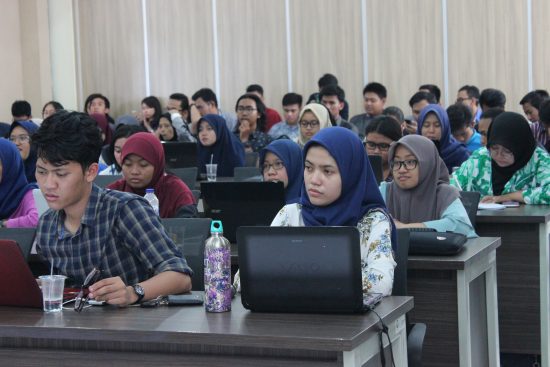
Latest News
-
Guest Lecturer Prof. Azizan – USM Malaysia (May 03, 2023)
Post Views: 564
-
Guest Lecture – Ir. Wahju Widya Laksana N, MM (Nov 26, 2019)
Lecture : Ir. Wahju Widya Laksana N, MM Agency : Dinas Kelautan dan Perikanan Prov. Jawa Timur Theme of
-
Guest Lecture – Ramadhan Adi Pratama, ST, MT (PT. Urban Spasial Indonesia) – November 19, 2019
Theme : Pemanfaatan Teknologi Drone dalam Penataan Ruang Lecture : Ramadhan Adi Pratama, ST, MT Agency : PT. Urban





